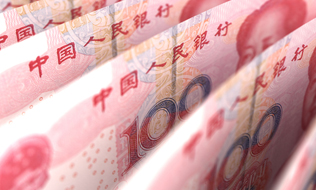

Last spring, U.S. President Donald Trump tweeted that trade wars are easy to win.
Last Friday, however, he tweeted the U.S. and China have really been in a trade war for the past three decades. Either way, tensions don’t seem about to diminish any time soon. So what do the latest skirmishes mean for institutional investors?
With a lack of any real timeline for a new trade deal, Trump and China’s President Xi Jinping are set to encounter each other at June’s G20 Summit in Osaka, Japan. Currently, U.S. tariffs have soared to 25 per cent on US$250 billion of Chinese goods, with China responding on May 20 with tariffs of its own on US$60 billion worth of U.S. goods.
Read: ESG, China considerations holding fixed income investor interest: survey
What’s key to remember about this conflict is the U.S.’s main goal appears to be cracking the Chinese market open in a way that’s full of potential for both American businesses trying to expand into China and the investors who would flow in after them, says Eric Lascelles, chief economist at RBC Global Asset Management. “I do feel that, as much as this is a U.S./China dispute, it very much is the U.S. carrying a fairly heavy burden for the rest of the developed world and looking to create a more level playing field and one which would actually be more advantageous.”
In the short term, that doesn’t mean institutional investors looking to allocate to China will see an improvement, but the overall scenario could get better over the long haul, he says.
Read: How will U.S. trade dispute with China impact institutional investors?
What institutional investors could do two years ago in China, they can still do today, despite the tense environment, says Lascelles. Of course, it’s much more expensive to obtain goods from, or sell them to, China, which passes problems down to consumers in both countries. Investors looking to invest directly in a Chinese business, or expand an existing business into China, are seeing the most pain from the tariffs, he adds. “The options still exist, as much as the relationship is less stable than it was.”
This comes at a time when many investors are amping up their allocations to China, since some of the country’s equities were recently included in MSCI Inc’s emerging markets index.
“Even an indexed investor with any kind of active thoughts would be increasing their allocation over time,” says Lascelles. “And it looks like that trend is going to continue barring a stark deterioration of the connection of China to the world.”
Read: What China’s inclusion on a major emerging market index means for pension plans
